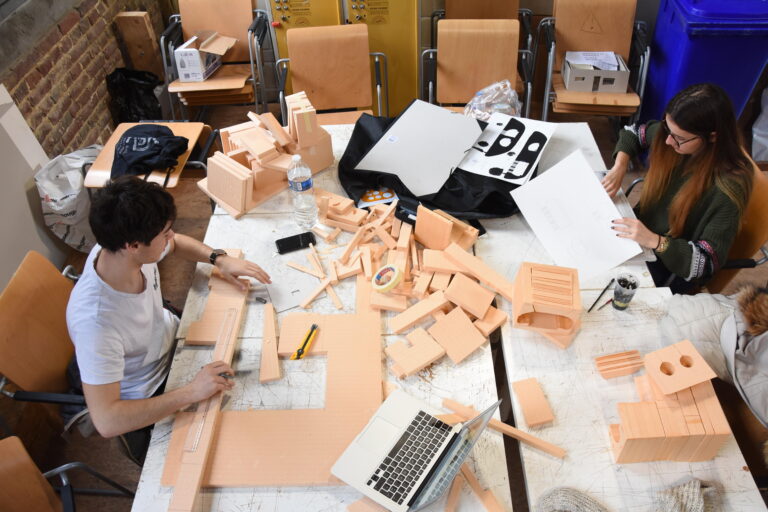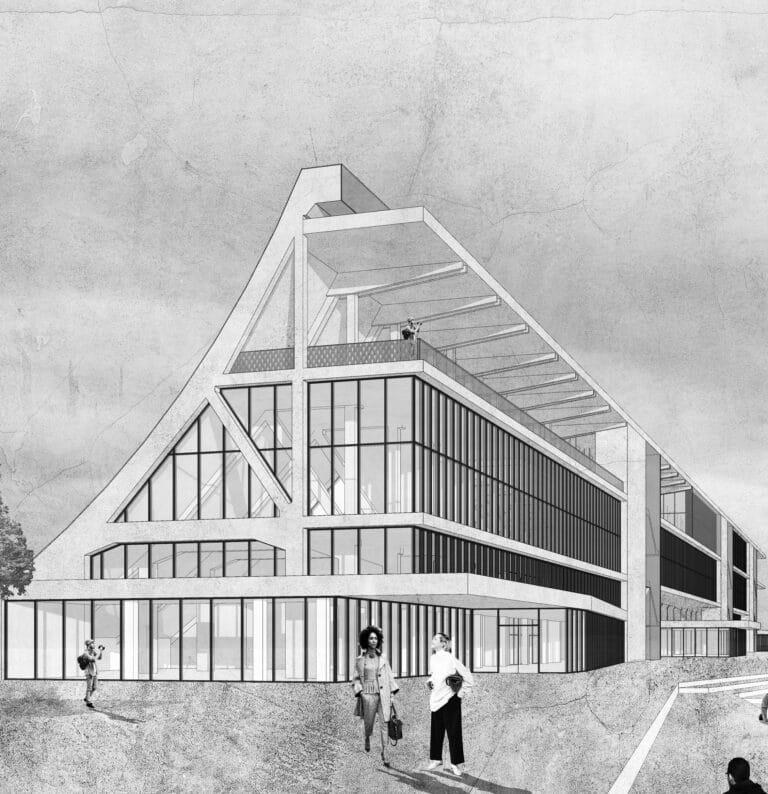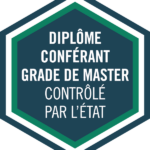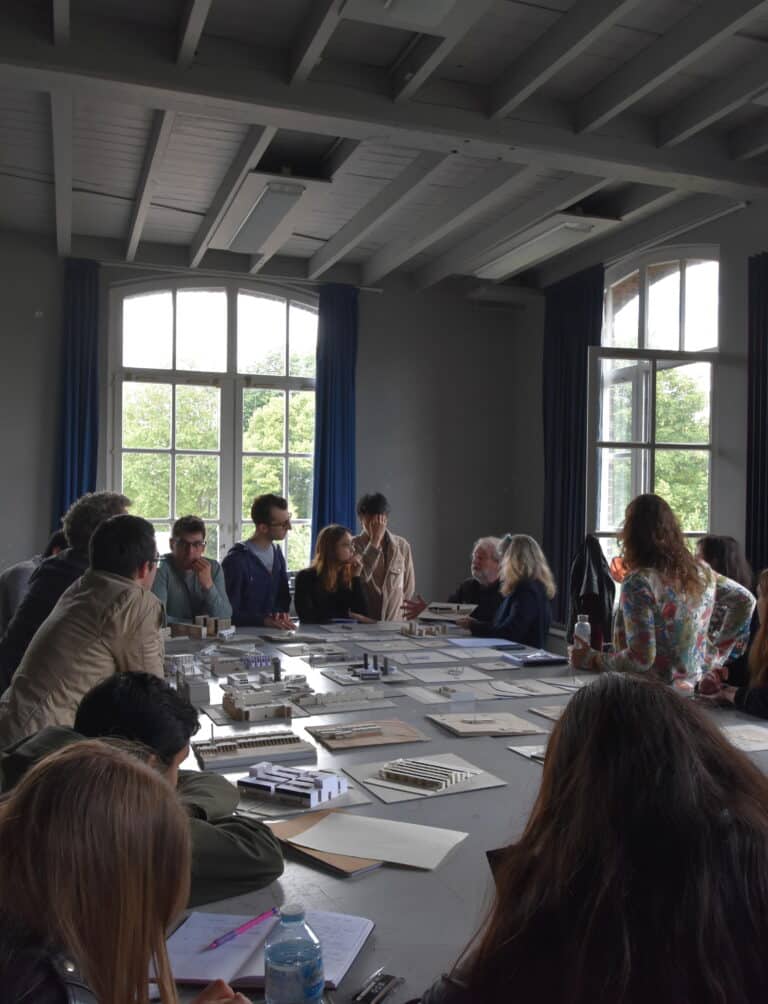The Master's programme is a programme devoted to strengthening knowledge. It enables students to acquire various skills: to design an architectural and urban project independently, to grasp the complexity of contemporary processes (societal, economic, environmental), to structure their critical thinking based on an initiation to research and to the different modes of practice of architecture.
There are 3 areas of study:
- Experimentation
- Architecture of the city and territories
- Trans-Form, building with what exists
and three teaching units:
- EU1: Multidisciplinary project workshop
- EU2: Research and Exploration
- EU3: Common lessons


Organisation of teaching
The teaching during this 4-semester cycle is given in the form of courses, project supervision, tutorials and seminars. They include a practical training course, the preparation of a dissertation and a final project.
Organisation of semesters
In the Master's cycle at ENSA Normandie, students benefit from training mainly provided within the fields of study (DE). Together, the various DEs prepare students for the practice of the architectural profession and open them up to the major contemporary issues. In addition, the DEs play a central role in the attractiveness of ENSA Normandie on a national and international level, in its territorial anchorage, and in its integration in the ecosystem of higher education and research. Each student chooses a DE on entering the Master's cycle and follows all the courses over 4 semesters. The internship is integrated into the curriculum.
International
Studying architecture at ENSA Normandie is enriched by international experience. This can take the form of study mobility, internship mobility, or professional experience abroad. This stay abroad is compulsory to validate the Master's degree. Bachelor's students are invited to apply for international mobility.
Objective
The aim is to enable the student to master the essential concepts of the tools and methods of urban architectural design.
Master the tools, concepts and fundamental knowledge, particularly theoretical, scientific and technical, necessary for the shaping of the architectural project in an urban or landscape context, as well as for its implementation
Develop critical thinking about the issues specific to architecture at its different scales: building, city, territory
Conducting a complex architectural project with the support of an educational environment
To benefit from an initiation to study and research work, offering the opportunity to build a research mention to the State diploma of architect conferring the grade of Master, and in the eventuality of an orientation towards a third cycle of research
Validation mode
Skills and knowledge acquisition are assessed either by continuous assessment or by a final evaluation or examination, or by a combination of both.
The PFE (Project for the End of Studies) is a prerequisite for the ADE (Architecte Diplômé d'Etat) diploma.

